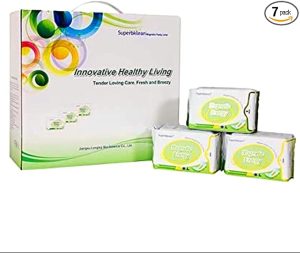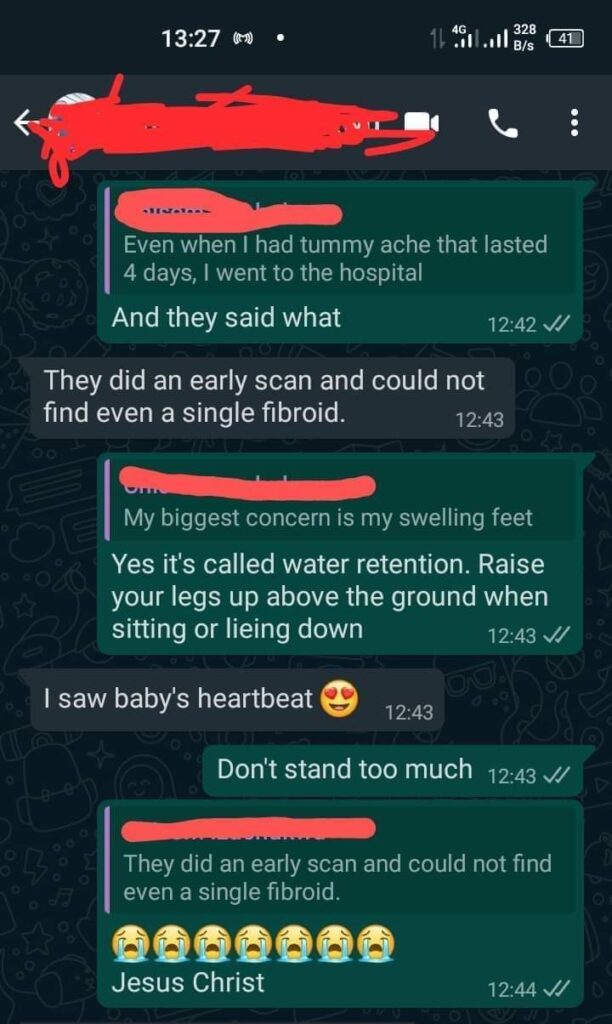What is infertility in Women?
Infertility is a disease in which the ability to get pregnant and give birth to a child is impaired or limited in some way. For heterosexual couples (man and woman), this is usually diagnosed after one year of trying to get pregnant (but may be diagnosed sooner depending on other factors). For heterosexual couples, one third of causes of infertility are due to a male problem, one third are due to a female problems, and one third are due to combination or unknown reasons. When the cause of the infertility is found to come from the female partner, it’s considered female infertility or “female factor” infertility.


How common is infertility in women in Cameroon?
Infertility is a common disease. At least 10% of women deal with infertility of some kind. The chances of being infertile increases as a woman ages.
What causes infertility in women in Cameroon?
There are many possible causes of infertility. However, it can be difficult to pinpoint the exact cause, and some couples have “unexplained” infertility or “multifactorial” infertility (multiple causes, often both male and female factors). Some possible causes of female factor infertility can include:
- Problems with the uterus: This includes polyps, fibroids, septum or adhesions inside the cavity of the uterus. Polyps and fibroids can form on their own at any time, whereas other abnormalities (like a septum) are present at birth. Adhesions can form after a surgery like a dilation and curettage (D&C).
- Problems with the fallopian tubes: The most common cause of “tubal factor” infertility is pelvic inflammatory disease, usually caused by chlamydia and gonorrhea.
- Problems with ovulation: There are many reasons why a woman may not ovulate (release an egg) regularly. Hormonal imbalances, a past eating disorder, substance abuse, thyroid conditions, severe stress and pituitary tumors are all examples of things that can affect ovulation.
- Problems with egg number and quality: Women are born with all the eggs they will ever have, and this supply can “run out” early before menopause. In addition, some eggs will have the wrong number of chromosomes and cannot fertilize or grow into a healthy fetus. Some of these chromosomal issues (such as “balanced translocation”) may affect all of the eggs. Others are random but become more common as a woman gets older.
Who is at risk for infertility in women in Cameroon?
Many factors can increase a woman’s risk of female infertility. General health conditions, genetic (inherited) traits, lifestyle choices and age can all contribute to female infertility. Specific factors can include:
- Age.
- Hormone issue that prevents ovulation.
- Abnormal menstrual cycle.
- Obesity.
- Being underweight.
- Having a low body-fat content from extreme exercise.
- Endometriosis.
- Structural problems (problems with the fallopian tubes, uterus or ovaries).
- Uterine fibroids.
- Cysts.
- Tumors.
- Autoimmune disorders (lupus, rheumatoid arthritis, Hashimoto’s disease, thyroid gland conditions).
- Sexually transmitted infections (STIs).
- Polycystic Ovary Syndrome (PCOS).
- Primary Ovary Insufficiency (POI).
- Excessive substance use (heavy drinking).
- Smoking.
- DES syndrome (DES is a medication that was given to women to prevent complications in pregnancy like premature birth or miscarriage. However, this medication has caused infertility in some of the children of mothers who took DES.).
- A past ectopic (tubal) pregnancy.
How does age impact infertility in women in Cameroon?
As a woman ages, her chances of becoming pregnant decreases. Age is becoming a more common factor in female infertility because many couples are waiting to have children until their 30s or 40s. Women over age 35 have a higher risk of having fertility issues. The reasons for this include:
- Overall number of eggs is lower.
- More eggs have an abnormal number of chromosomes.
- An increased risk of other health conditions.
What will my doctor ask during an appointment to diagnose infertility in women
Your healthcare provider will need to know about your menstrual periods, any past pregnancies, miscarriages, pelvic pain, unusual vaginal bleeding or discharge. You may also be asked about any past pelvic infections or sexually transmitted infections (STIs). Some questions may include:
- Have you had any previous pregnancies or miscarriages?
- Is your menstrual cycle normal and regular or painful and irregular?
- Do you have heavy bleeding or abnormal discharge?
- Do you have any pelvic pain?
- Have you had any abdominal surgeries in the past?
How is infertility in women in Cameroon treated?
Once your healthcare provider has diagnosed female infertility and pinpointed the cause, there are a variety of treatment options. The cause of the infertility guides the type of treatment. For example, structural problems may be treated through surgery, while hormonal medications can be used for other issues (ovulation issues, thyroid conditions).
Many patients will require artificial insemination (injecting washed sperm into the uterus after ovulation) or in vitro fertilization (fertilizing eggs with sperm in the lab to make embryos, then transferring the embryo into the uterus).
Adoption and gestational surrogacy may also be options for women with infertility who wish to start a family.
The use of organic products to treat infertility in women has proven very successful too;
Achieve hormonal balance and enjoy the benefits of Longrich Mengqian.


- Regulates hormonal balance and metabolism
- Improves fertility in women
- Promote healthy skin and hair
- Detoxifies the system
- Effective anti-aging agents




According to the Longrich experts, women seeking for the fruit of the womb are advised to use Longrich panty liners/pads for six weeks and after which they are expected to take a break and observe for three months.
After three months, a pregnancy test is advised. If positive, they are advised to stop using Longrich panty liners/pads after pregnancy because it might cause abortion/miscarriage.
Can infertility in women in Cameroon be prevented?
Most forms of infertility in Women in Cameroon cannot be predicted or prevented. However, the risk factors that may contribute to infertility can, in some cases, be controlled to prevent this condition. For example, lifestyle modifications, such as reducing alcohol consumption and quitting smoking, may be beneficial to one’s fertility, as is maintaining a healthy weight and developing good exercise habits. It’s important to regularly visit your healthcare provider and discuss any other risks you may have for female infertility. Also refrain from contraceptives and take organic products to keep your reproductive system healthy to harbor a child.
What is the outlook for infertility in women?
The outlook (prognosis) for infertility in women in Cameroon depends greatly on the individual and the underlying cause of infertility. In cases where medication can be used to treat an ovulatory condition, or a simple surgical procedure can be used to correct a structural abnormality (polyps or solitary fibroids), the outlook is generally positive. Talk to your doctor about your family history, risk factors and underlying medical issues to learn more about your prognosis.







